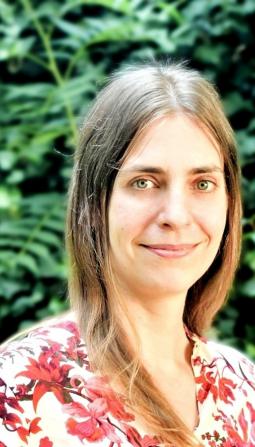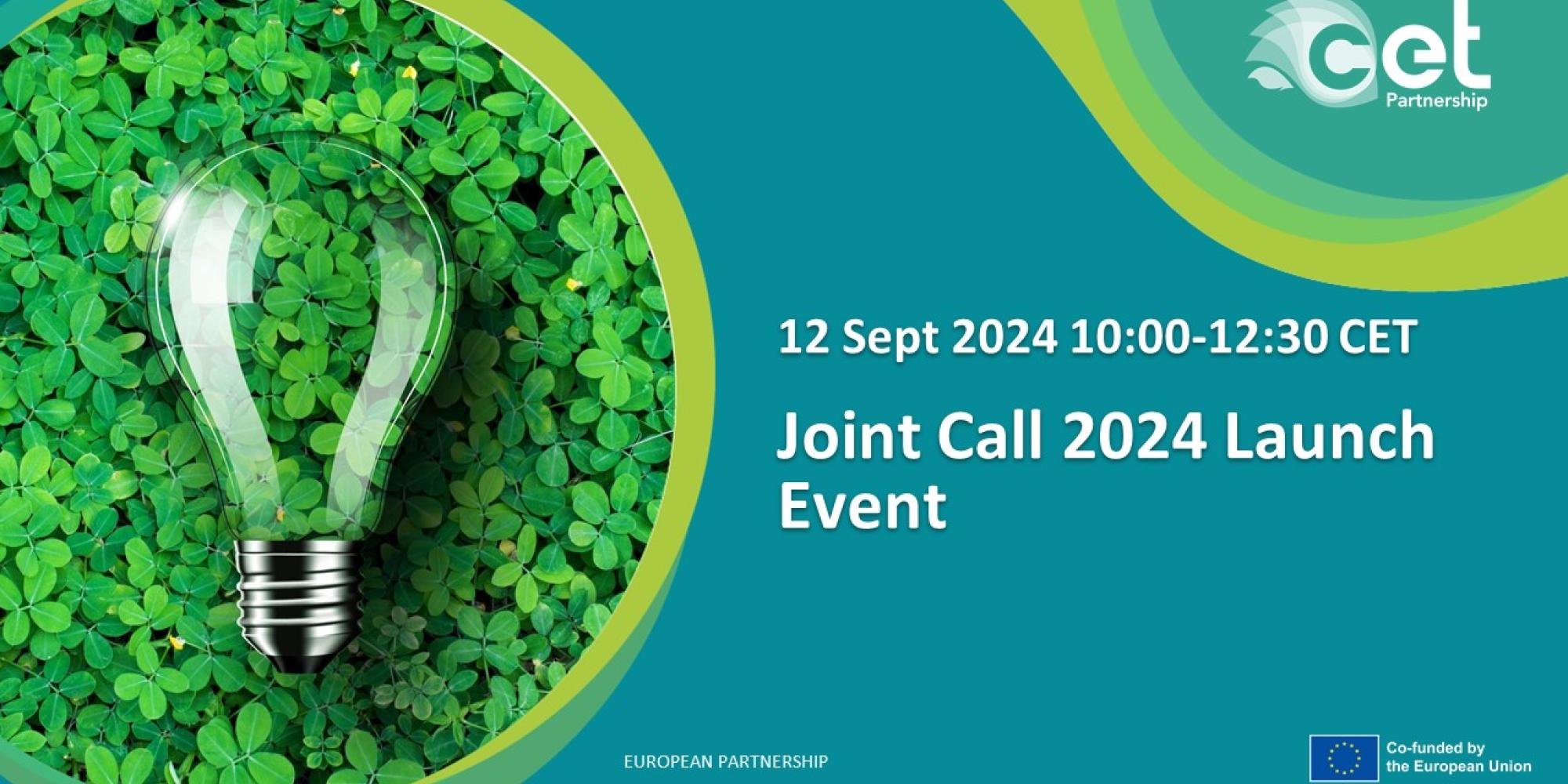
Launch Event of the Clean Energy Transition Partnership 2024 Call
The Clean Energy Transition Partnership launches its third Joint Call on 19 September 2024. On that occasion, they are organising a launch event to provide more information on what topics will be addressed in 2024 and to clarify all open questions about applying for the Joint Call 2024. The event will take place online on 12 September, 10:00-12:30.
If you are still looking for project partners, they will also provide you with tips and tricks as well as tools to find relevant project partners and to initiate project consortia for the Joint Call 2024.
Who is this for?
If you are a technology provider, research institution, infrastructure provider, industrial or energy company (experienced or new) interested in receiving funding for your ideas or in need of innovative clean energy solutions, then this is the event for you.
To learn more and to register for the event, click here.
- 12/09/2024 - 10:00 - 12/09/2024 - 12:00
- This meeting will take place online
- Daniele Ruggiano
-
Working Group
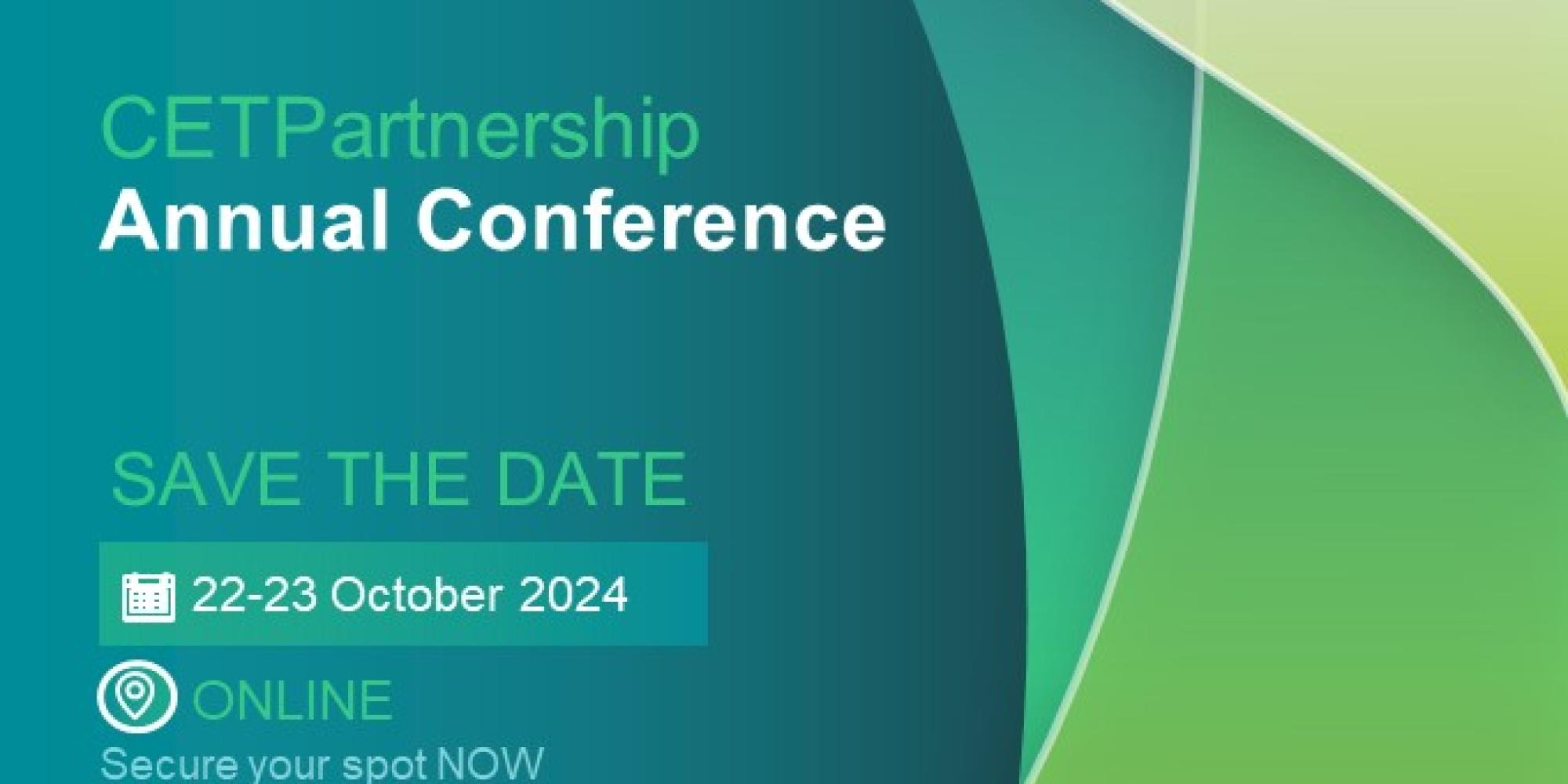
Clean Energy Transition Partnership Annual Conference 2024
The Clean Energy Transition Partnership (CETPartnership) is organising its annual conference online on 22-23 October 2024. During several sessions, participants will get the chance to contribute to important policy discussions, learn more about how CETPartnership contributes to achieving the clean energy transition goals and engage in networking with several stakeholders.
What can you expect from the event?
-
Follow latest policy discussions and research results on burning topics of the clean energy transition.
-
Get new insights from experts on the role of research and innovation in addressing the clean energy transition.
-
Discover the key thematic challenges addressed by CETPartnership
-
Get to know CETPartnership funded projects and their endeavours
-
Learn about how the CETPartnership leverages research results in their Knowledge Community and Impact Network activities
-
Clarify all open questions and find potential project partners for the CETPartnership Joint Call 2024
To learn more about the event and to register, click here.
- 22/10/2024 - 10:00 - 23/10/2024 - 16:00
- This meeting will take place online
- Daniele Ruggiano
Silvia Ghiretti
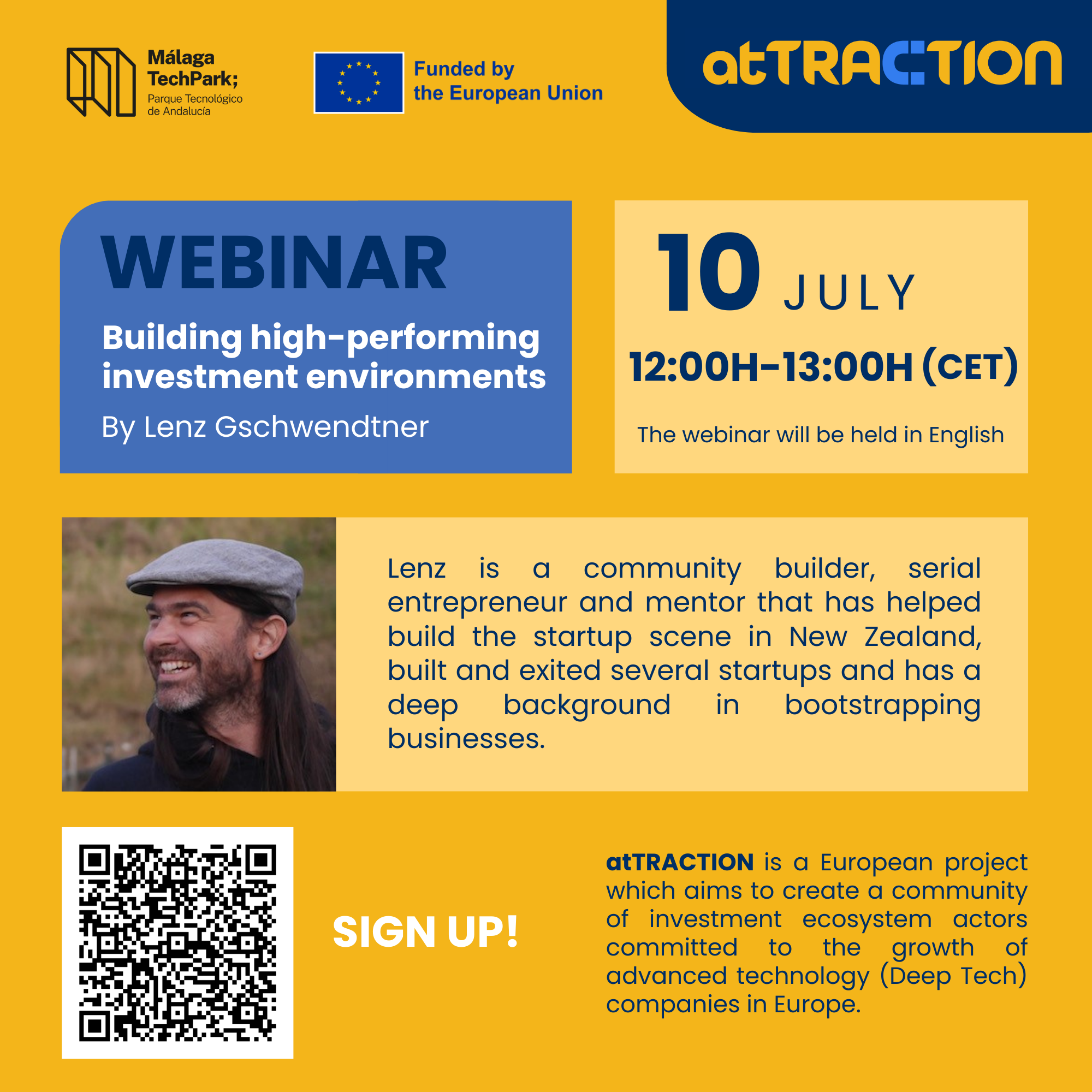
atTRACTION webinar: "Building High-Performance Investment Environments"
Málaga TechPark is pleased to invite you to participate in the first webinar they organised as part of the European project atTRACTION. The project aims to create a community of investment ecosystem actors committed to the growth of Deep Tech companies in Europe.
These webinars aim to provide inspirational talks for potential investors, inform them about initial steps in the investment realm, guide them through support networks, and showcase real-life cases and experiences of investors and Business Angels.
Málaga TechPark will host Lenz Gschwendtner, Local.foundation Co-Founder, as speaker.
Lenz Gschwendtner is an international community designer, serial entrepreneur, and mentor. He has played a pivotal role in advancing the startup scene in New Zealand, creating and developing several successful startups. Lenz organises and mentors startup events worldwide and assists in the establishment of incubators and accelerators.
This event is a unique opportunity to learn from his experience and gain practical insights that can help improve your own investment strategies.
To register for the event, click here.
- 10/07/2024 - 12:00 - 10/07/2024 - 13:00
- This meeting will take place online
-
Málaga TechPark
C/ María Curie, 35 - 29590 – Málaga, Spain
29590 Málaga Málaga
Spain - Sonia Palomo
-
Working Group
Ewa Chomicz
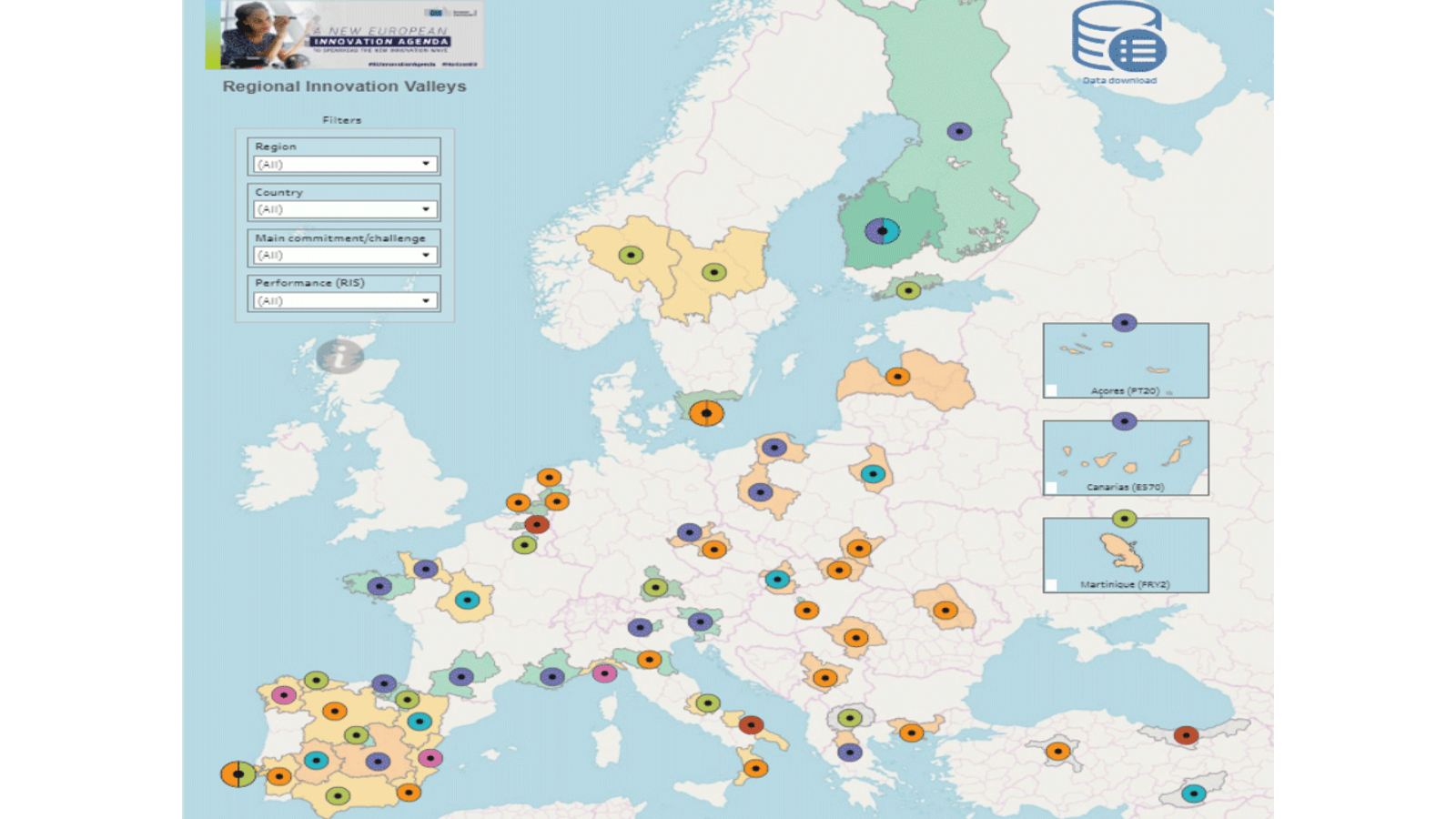
Regional Innovation Valleys - Bioeconomy
The Grand Est Region in France has just received a Regional Innovation Valley (the label, not the EIE grant) for bioeconomy.
We are looking for other regions that have just received a Regional Innovation Valley in a similar theme: bioeconomy, circular economy, or agriculture, in order to strengthen collaboration and see if a possible joint candidature for another EIE call would be possible.
If you have received a Regional Innovation Valley on these themes, please contact Marie Clotteau at marie.clotteau@grandest.eu.
- Marie CLOTTEAU
- 01 July 2024
UCSF Center for Health Research looking for partners
- Greater Copenhagen EU Office
- 28/06/2024
-
Deadline for Expression of Interest15 September 2024
-
NameLouise FrilundOrganisation NameGreater Copenhagen EU Office
- Get in Touch
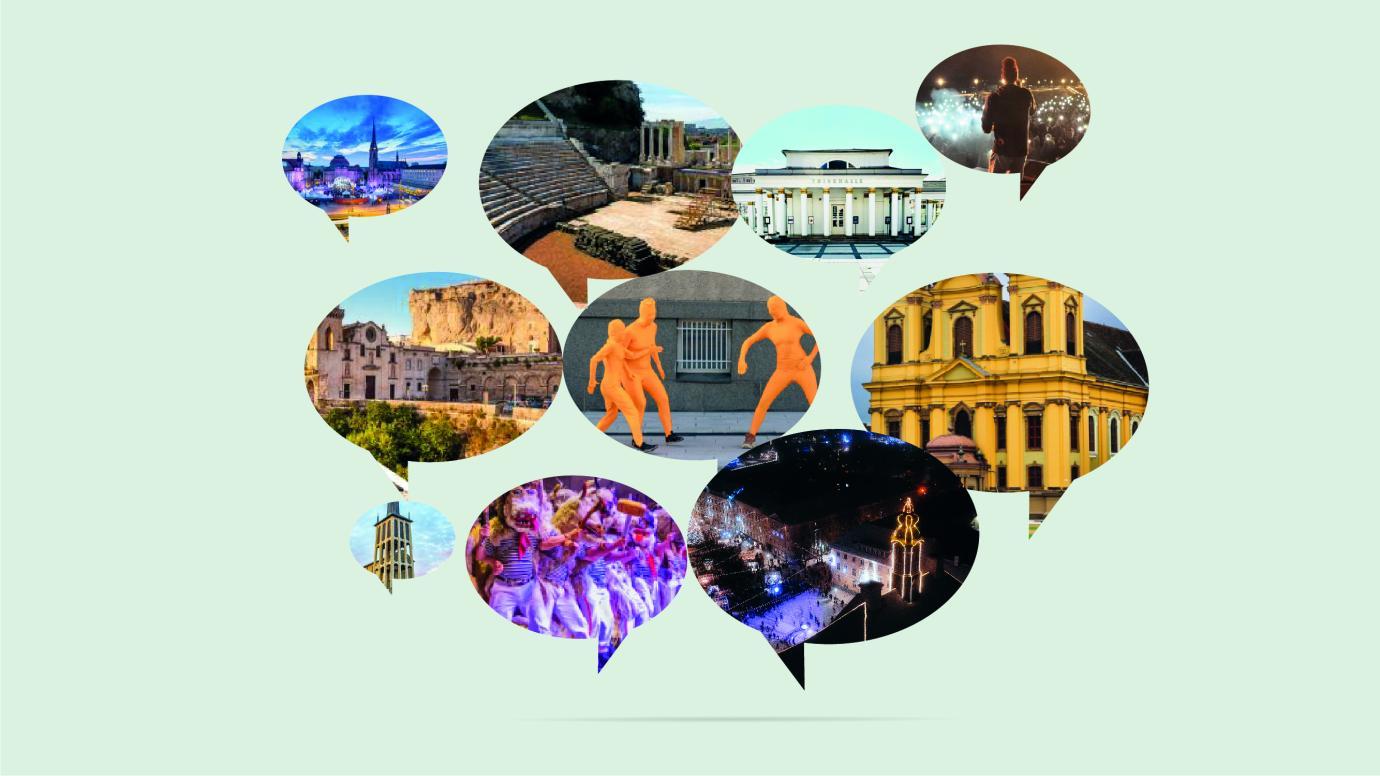
Have your say on the European Capitals of Culture!
The European Commission is undertaking the first interim evaluation of the European Capitals of Culture action 2020-2033.
The evaluation seeks to identify the action's impact in the last ten years. Understanding the full potential of the legacy of hosting a European Capital of Culture provides lessons for cities interested in developing their culture's strategies and can help reflect on new ways to improve the scheme.
The first European Capital of Culture took place in Athens in 1985, and since then, over 60 cities across Europe have been awarded the title. In its current form (covering the ECoC titles 2020 to 2033), it has been designed to promote the diversity of cultures in Europe and increase European citizens’ sense of belonging to a common cultural area. It also contributes to the regeneration of cities and their overall cultural, social, and economic development.
The results of this consultation will be used together with other data to inform the ongoing first interim evaluation of the European Capital of Culture action 2020-2033. These will feed into a European Commission report submitted to the European Parliament, the Council of the European Union, and the European Committee of the Regions.
The evaluation will also help the European Commission with their reflexions on the future of the European Capital of Culture action after 2033.
Find more information about the European Capitals of Culture action here and reply to the consultations here.
- Francesca Pozzebon
- 28/06/2024
-
Working Group
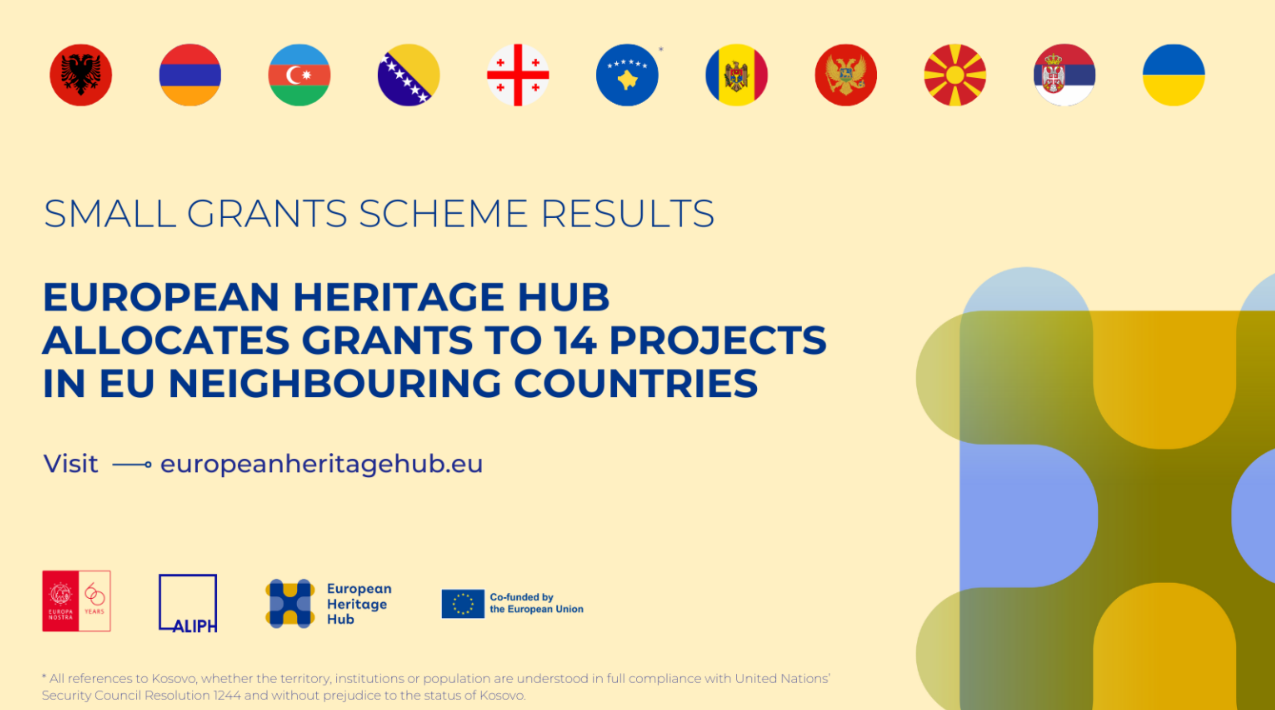
European Heritage Hub announces grants to 14 heritage projects in EU neighbouring countries and calls for increased funding
The European Heritage Hub, a pilot project co-funded by the EU connecting heritage stakeholders across Europe, has selected 14 heritage projects across 11 EU neighbouring countries for its Small Grants Scheme (see annexe for the complete list of projects).
The selected projects highlight the fundamental role our shared heritage can and must play in the EU enlargement process. These initiatives range from bottom-up approaches showcasing diverse expertise to heritage promotion and educational activities to the inventory, mapping, or digitisation of monuments and sites and the revival of war-torn towns. Despite their varied backgrounds, each project underscores how heritage fosters social inclusion and strengthens communities.
Around 250,000 EUR has been allocated to the selected initiatives led by civil society organisations, distributed among small, medium, and large-scale grants. The Scheme is run by Europa Nostra, the Project Leader of the European Heritage Hub, in consultation with other members of the Hub consortium, and is co-funded by ALIPH Foundation.
The Small Grants Scheme supports civil society-led heritage projects in EU neighbouring countries (Albania, Armenia, Azerbaijan, Bosnia and Herzegovina, Georgia, Kosovo*, Moldova, Montenegro, North Macedonia, Serbia, and Ukraine). These projects aim to enhance their capacity to respond to Europe’s green, digital, and social transformation and foster peace, stability, reconciliation, and intercultural and interreligious dialogue.
From January to March 2024, the Scheme’s call received an impressive total of 600 eligible submissions, reflecting the need for increased support in these regions.
Learn more about the selected projects here.
- Francesca Pozzebon
- 28/06/2024
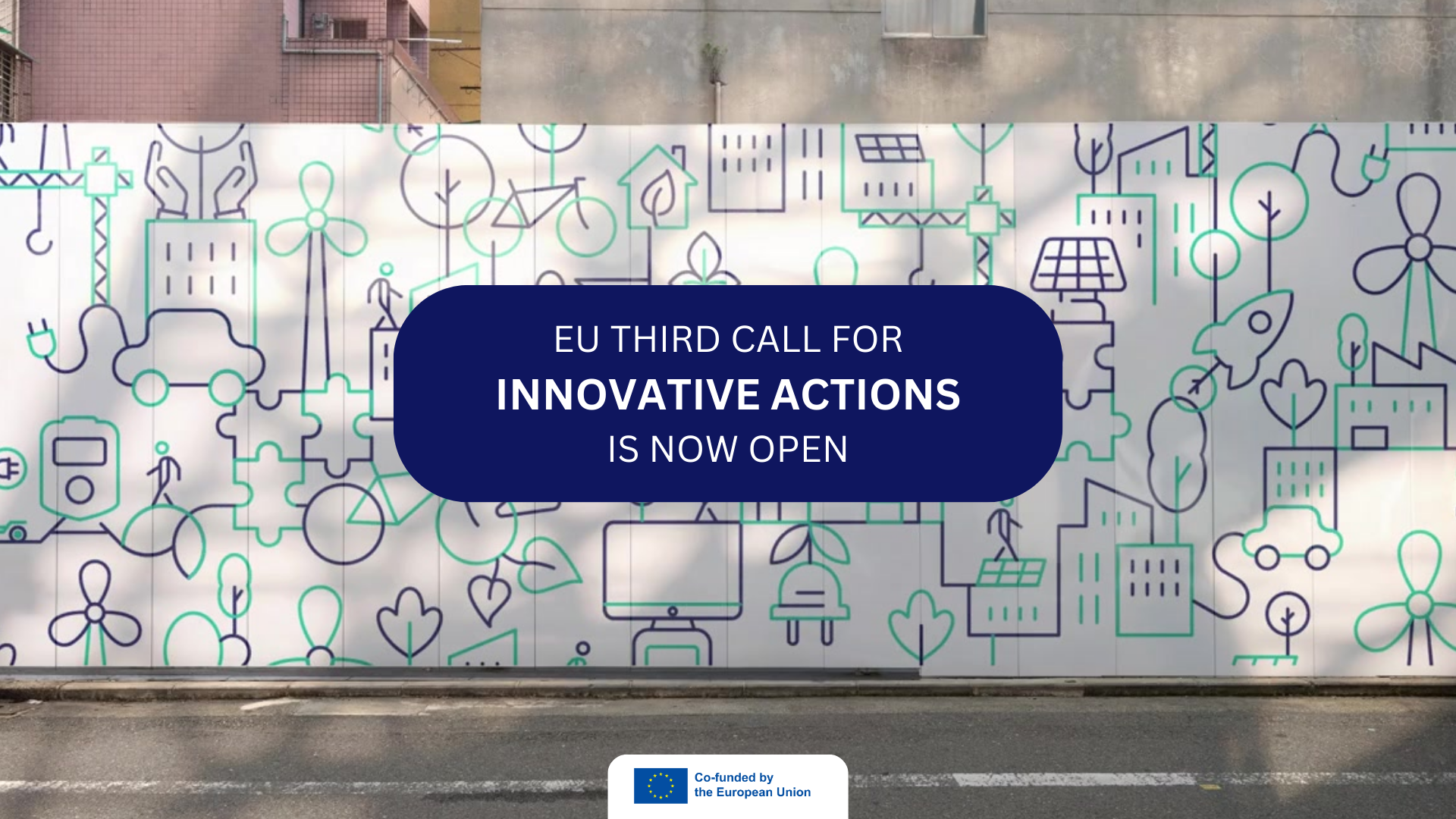
Third Call for Proposals EUI - Innovative Actions
The third EUI-Innovative Actions (EUI-IA) Call for Proposals is launched now and will close on 14 October 2024 at 14.00 CEST with an allocated indicative budget of EUR 90 million ERDF. Each project can receive up to a maximum of EUR 5 million ERDF co-financing and project implementation should take place within a maximum period of 3.5 years.
The Call will fund projects to deliver tangible, real-life examples under the topics ‘energy transition’ and ‘technology in cities’. Cities interested in applying are invited to begin developing their project proposals as early as possible, utilising the various resources available on the Call page.
Learn more and apply for the call here.
- Daniele Ruggiano
- 26/06/2024
-
Working Group
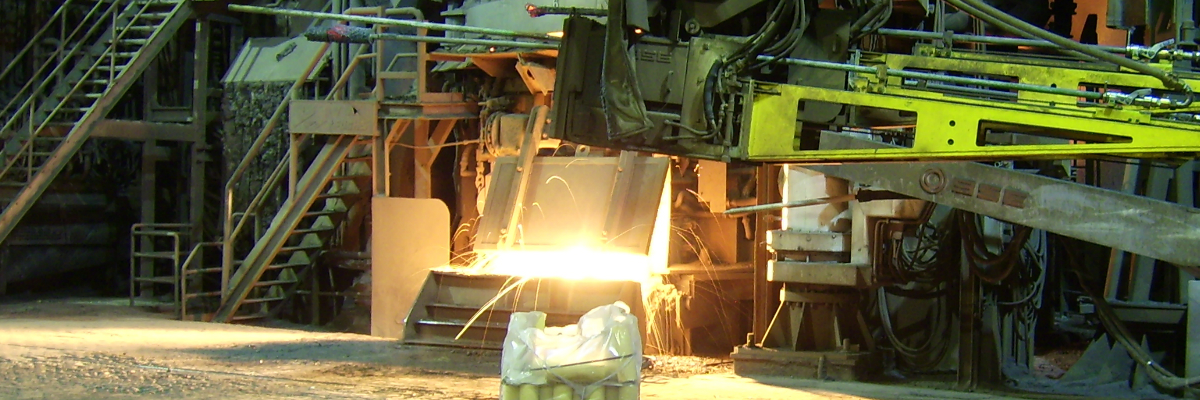
6th European Academic Symposium on EAF Steelmaking (EASES 2025)
The Laboratory of Control Systems and Cybernetics at the University of Ljubljana and the Department for Industrial Furnaces and Heat Engineering at RWTH Aachen University are organising the:
6th European Academic Symposium on EAF Steelmaking – EASES 2025
University of Ljubljana
Ljubljana, Slovenia
11-13 June 2025
The European Academic Symposium on EAF Steelmaking is focused on researchers and doctoral candidates in academia, research and technology organisations and companies with the topic of EAF steelmaking and technology. It will allow the researchers and PhD students to present and discuss about their current research projects on the EAF process on topics like:
- Efficiency and optimisation
- Process control, digitalisation and sensors
- CO2 emission reduction and environmental impact
- Process modelling and simulation
- Scrap treatment and control
- Alternative/new charge materials (DRI/HBI/…)
- Slag and by-products engineering, processing and valorisation
- Production of new steel grades
- Important dates
The call for papers is expected in late summer 2024.
Registration for the symposium will open in February 2025.
To be kept up to date with the latest news from the EASES 2025, you're invited to complete the online form at https://www.eases.rwth-aachen.de.
To learn more, click here.
- 11/06/2025 - 09:00 - 13/06/2025 - 17:00
-
University of Ljubljana
Kongresni trg 12
1000 Ljubljana
Slovenia - Bostjan Sinkovec
-
Working Group
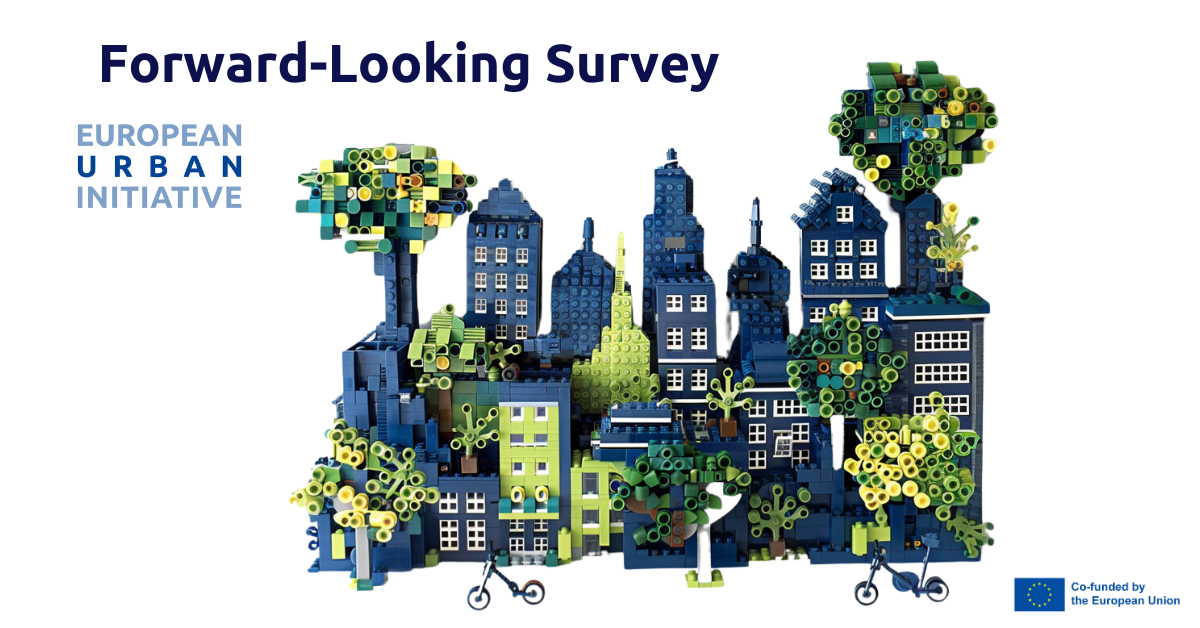
The Forward-Looking Survey - European Urban Initiative
The European Urban Initiative (EUI) has launched a forward-looking survey to gather vital insights from urban practitioners and policymakers across Europe. The objective of this survey, hosted on Portico, is to consult cities and all relevant stakeholders to identify key trends, challenges, knowledge gaps and support needs in the field of sustainable urban development in the European Union. In this way, the European Commission and the EUI Entrusted Entity will be able to gain a deeper understanding of the emerging dynamics and needs of urban areas and ensure that EUI activities and services are aligned with them.
This survey represents a unique opportunity to express your views and impact the content and strategic direction of EUI activities, which will inform the urban dimension of EU Cohesion Policy and beyond.
Learn more and access the survey here.
- Daniele Ruggiano
- 26/06/2024

